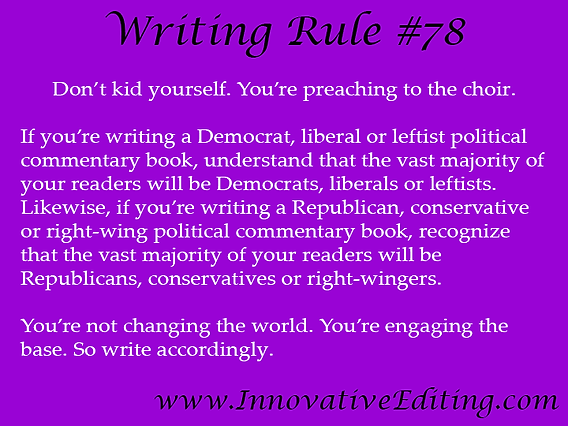Ezra Klein: Leading Voice in Political Commentary and Explanatory Journalism
Ezra Klein: Leading Voice in Political Commentary and Explanatory Journalism

Ezra Klein stands as one of America's most influential political commentators and journalists, known for his ability to make complex policy issues accessible to mainstream audiences. Born on May 9, 1984, in Irvine, California, Klein has transformed from a young blogger into a leading voice in explanatory journalism, currently serving as a New York Times columnist and host of the acclaimed podcast "The Ezra Klein Show."
Early Life and Educational Foundation
Ezra Klein grew up in a Jewish family in Southern California, where his intellectual curiosity was nurtured from an early age. His mother, Jacqueline Klein, is an artist, while his father, Abel Klein, serves as a mathematics professor at the University of California, Irvine. This academic environment profoundly shaped Klein's analytical approach to journalism and politics.
Klein's early education included Hebrew school and attendance at a Jewish day school, experiences that contributed to his later thoughtful approach to complex social and political issues. He spent considerable time on the UC Irvine campus, absorbing the academic atmosphere that would later influence his career trajectory.

After graduating from University High School, Klein initially attended the University of California, Santa Cruz, before transferring to UCLA, where he graduated in 2005 with a Bachelor of Arts degree in political science. His path to journalism wasn't immediately clear – Klein originally thought he would work in politics, even interning for Howard Dean's presidential campaign. However, his experience working on campaigns revealed that traditional politics wasn't his calling.
Career Beginnings and the Juicebox Mafia
Klein's journalism career began somewhat accidentally. While still a student, he started a blog that gained attention from people in the journalism industry. As he later reflected, "The people in my life saw earlier than I did that I was moving toward journalism." This early recognition of his talent led him to Washington, D.C., where he began working at the liberal magazine American Prospect.
In 2009, at just 25 years old, Klein was hired by The Washington Post as a blogger focusing on politics and economics. He quickly established himself as a formidable force in political journalism, creating Wonkblog, which became one of the most-read sections of the newspaper. At his peak, Klein was posting up to 20 items per day, generating massive web traffic and attracting attention from leading economists and policymakers.
During this period, Klein became part of what was dubbed the "Juicebox Mafia" – a group of young, progressive bloggers including Matthew Yglesias, Dave Weigel, and Brian Beutler. The New York Times called them "Washington's new Brat Pack" and described Klein as a "multiplatform superman of blogging-twittering-column writing."
Co-founding Vox Media and Explanatory Journalism
In 2014, Klein made a bold career move by leaving The Washington Post to co-found Vox Media alongside Matt Yglesias and Melissa Bell. Vox was conceived as an "explanatory journalism" platform, designed to help readers understand complex news stories through context and analysis rather than just breaking news reporting.

Under Klein's leadership as editor-in-chief and later editor-at-large, Vox grew from a startup with 20 staff members to a major media organization employing over 100 journalists. The platform became known for its distinctive approach to journalism, using cards, graphics, and comprehensive explainers to break down complex policy issues for general audiences.
Vox's success established Klein as a pioneer in digital journalism and demonstrated the appetite for thoughtful, analytical content in an increasingly fragmented media landscape. The platform's influence extended beyond traditional metrics, helping to shape public discourse on everything from healthcare policy to climate change.
New York Times Columnist and Media Influence
In 2021, Klein joined The New York Times as an opinion columnist, bringing his podcast "The Ezra Klein Show" with him. This move represented a significant moment in media, as Klein chose the prestige and platform of the Times over potentially more lucrative independent opportunities, including offers from Spotify and Substack.
Klein's decision reflected his commitment to institutional journalism and his belief in the importance of supporting the broader media ecosystem. As he explained, "If all the people who do what I do decide to go and capture all of their revenue themselves, then what happens to all the parts of the industry that are frankly more important than what I do, but are not self-sustaining in that way?"
His columns for the Times have covered a wide range of topics, from artificial intelligence and economic policy to social issues and political strategy. Klein's writing is characterized by his ability to synthesize complex information from multiple sources and present it in an accessible, engaging format.
The Ezra Klein Show: Conversations That Matter
"The Ezra Klein Show" has become one of the most respected political podcasts in America, featuring in-depth conversations with leading thinkers, policymakers, and experts across various fields. Klein's interviewing style is notable for its preparation, intellectual curiosity, and ability to ask probing questions that reveal new insights.

The podcast covers diverse topics including climate change, market economics, the future of political parties, consciousness studies, science fiction, and food systems. Klein's tagline, "conversations on something that matters," reflects his commitment to substantive dialogue on issues shaping society.
Each episode typically features extensive preparation, with Klein often reading guests' books and research papers beforehand. This preparation allows for conversations that go deeper than typical media interviews, often lasting 60-90 minutes and exploring complex ideas in detail.
Political Influence and Commentary
Klein's influence on American political discourse extends far beyond his readership and listenership. His work has been credited with influencing policy discussions during the Obama administration, and he was included in GQ magazine's 2012 list of the 50 most powerful people in Washington at number 34.
Perhaps Klein's most significant political intervention came in February 2024, when he published a column and podcast episode calling for President Joe Biden to step aside from the 2024 presidential race. This bold stance, made months before Biden's disastrous debate performance, demonstrated Klein's willingness to challenge conventional political wisdom and his party's establishment.
Klein's call for Biden to withdraw was based on polling data showing widespread concern about the president's age and electability. His prediction that "a lot of Democrats are going to be furious at me for this show" proved accurate, but his prescient analysis helped shift the conversation within Democratic circles and contributed to eventual changes in the party's approach to the election.
Books and Written Works
Klein has authored several influential books that have shaped political and economic discourse. His 2020 book "Why We're Polarized" examines the psychological and structural reasons behind America's increasing political divisions. The book was well-received by critics and made President Obama's 2022 summer reading list, cementing Klein's status as a leading voice on political psychology.

In 2025, Klein co-authored "Abundance" with journalist Derek Thompson. This book critiques both progressive and conservative approaches to economic growth, arguing that Democrats have often pursued anti-growth policies through excessive regulations and bureaucratic restraints. The book advocates for policies that can deliver both progressive values and economic abundance.
Klein's writing style combines rigorous analysis with accessible prose, making complex economic and political concepts understandable to general audiences. His work often features extensive research, data analysis, and interviews with experts across various fields.
Personal Life and Advocacy
Klein married journalist Annie Lowrey in 2011. Lowrey is an accomplished economist and writer who covers economic policy for The Atlantic. The couple has two children and represents a prominent power couple in Washington journalism circles.
Beyond his journalism career, Klein is a passionate advocate for animal welfare and veganism. He wrote a notable 2021 New York Times piece titled "We Will Look Back on This Age of Cruelty to Animals in Horror," in which he argued that industrial farming practices represent "a defining moral failing of our age."
Klein's advocacy extends to various progressive causes, though he maintains a commitment to analytical rigor that sometimes puts him at odds with partisan positions. His approach emphasizes evidence-based policy making and intellectual honesty, even when conclusions are politically uncomfortable.
Frequently Asked Questions
What is Ezra Klein's educational background?
Klein graduated from UCLA in 2005 with a Bachelor of Arts degree in political science. He initially attended UC Santa Cruz before transferring to UCLA. He also attended Hebrew school and a Jewish day school during his youth.
How did Ezra Klein become famous?
Klein rose to prominence through his political blog and later his work at The Washington Post, where he created Wonkblog. He became known for his ability to explain complex policy issues and was part of the "Juicebox Mafia" group of young progressive bloggers who gained influence in Washington.
What is The Ezra Klein Show about?
The Ezra Klein Show is a podcast featuring in-depth conversations with experts, thinkers, and policymakers on topics that matter to society. Episodes cover diverse subjects from artificial intelligence and climate change to political psychology and economic policy.
What books has Ezra Klein written?
Klein has written "Why We're Polarized" (2020), which examines American political divisions, and co-authored "Abundance" (2025) with Derek Thompson, which critiques anti-growth policies and advocates for progressive abundance.
What is Ezra Klein's political perspective?
Klein is generally progressive but emphasizes analytical rigor and evidence-based policy making. He's willing to challenge both conservative and liberal orthodoxies when data suggests different approaches, as demonstrated by his call for Biden to step aside in 2024.
📢 Share this comprehensive guide to Ezra Klein and help others discover one of America's most influential political commentators! Use the social media buttons below to spread knowledge about this pioneering journalist.
🎧 Found this article insightful? Share it now!
Help others discover Ezra Klein's influential work in political commentary and explanatory journalism by sharing this detailed biography and analysis.